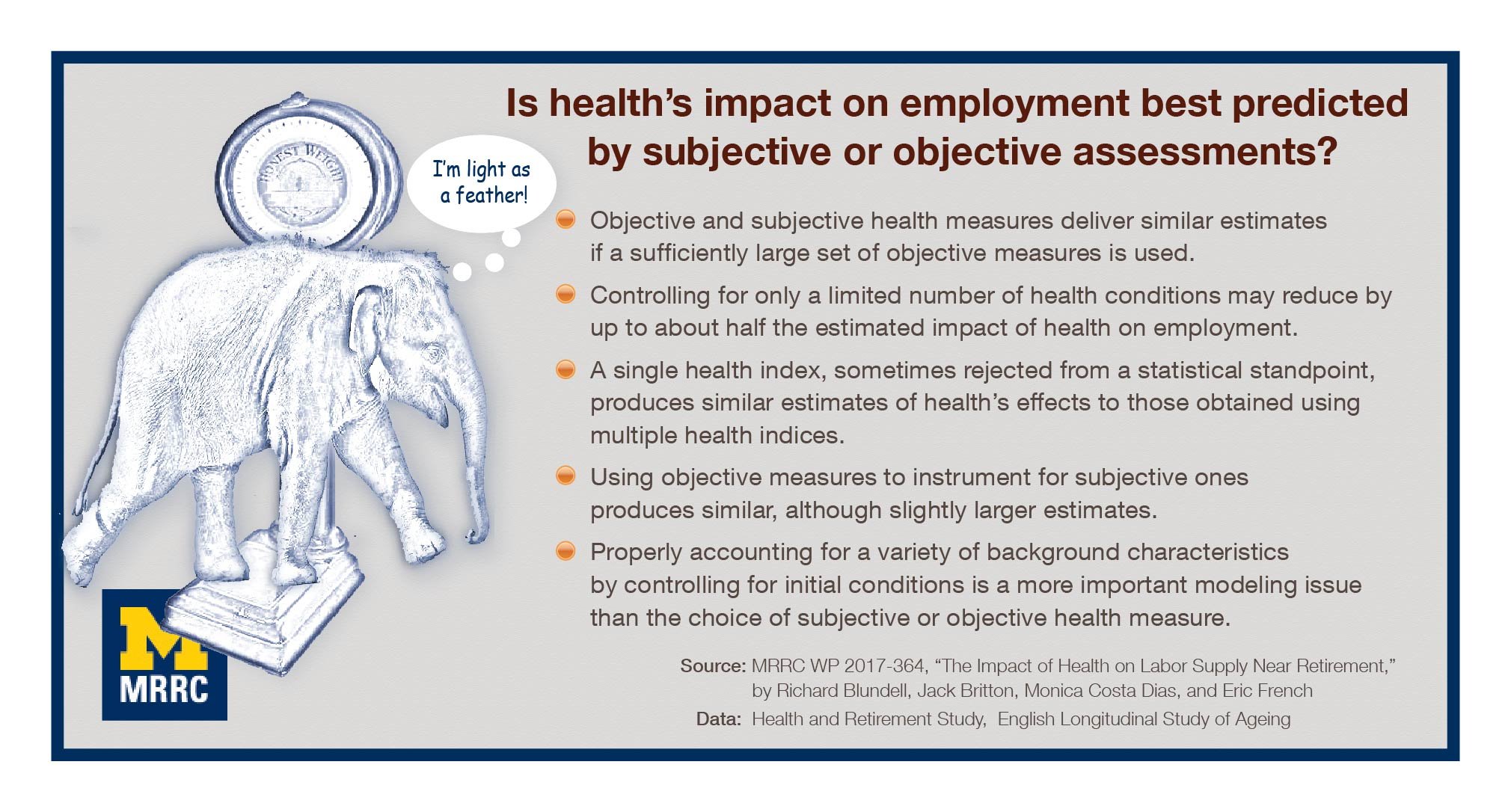Despite the growing number of studies and the increasing availability of detailed data, researchers haven’t developed a consensus on how health affects employment. This is partly explained by the wide variety in datasets (how they are collected, how they measure health) and in modeling strategies used between studies. To gauge health, some studies use respondents’ self-assessments of overall health (subjective) while others use indicators of a named disease, such as arthritis (objective). Some studies use of cross-sectional data leads to a focus on health’s overall impact, while using longitudinal data creates estimates on the impact of health changes. These disparities make direct comparisons between studies difficult or impossible and, unsurprisingly, have led to significantly different estimates for health’s effect on employment.
In “The Impact of Health on Labor Supply Near Retirement” ( MRRC WP 2017-364, UM17-02), Richard Blundell, Jack Britton, Monica Costa Dias, and Eric French gather up the various methods used in previous papers, unite them in a single framework, and produce a set of estimates that can be compared across studies, paying specific attention to whether subjective or objective health measures are more predictive. To combat measurement error, including justification bias (a subjective measure’s Achilles heel), they use objective measures as an instrument for the subjective ones. Since cognition is closely related to health and may capture more detail on how health impairs work, the researchers also include it in their empirical model.
The researchers found that:
- Objective and subjective health measures deliver similar estimates if a sufficiently large set of objective measures is used;
- Controlling for only a limited number of health conditions may reduce by up to about half the estimated impact of health on employment;
- A single health index, sometimes rejected from a statistical standpoint, produces similar estimates of health’s effects to those obtained using multiple health indices;
- Using objective measures to instrument for subjective ones produces similar, although slightly larger estimates;
- Properly accounting for background characteristics’ heterogeneity by controlling for initial conditions is a more important modeling issue than the choice of subjective or objective health measure;
- Cognition has little added explanatory power once the researchers controlled for health.
Read the research brief or full paper.

